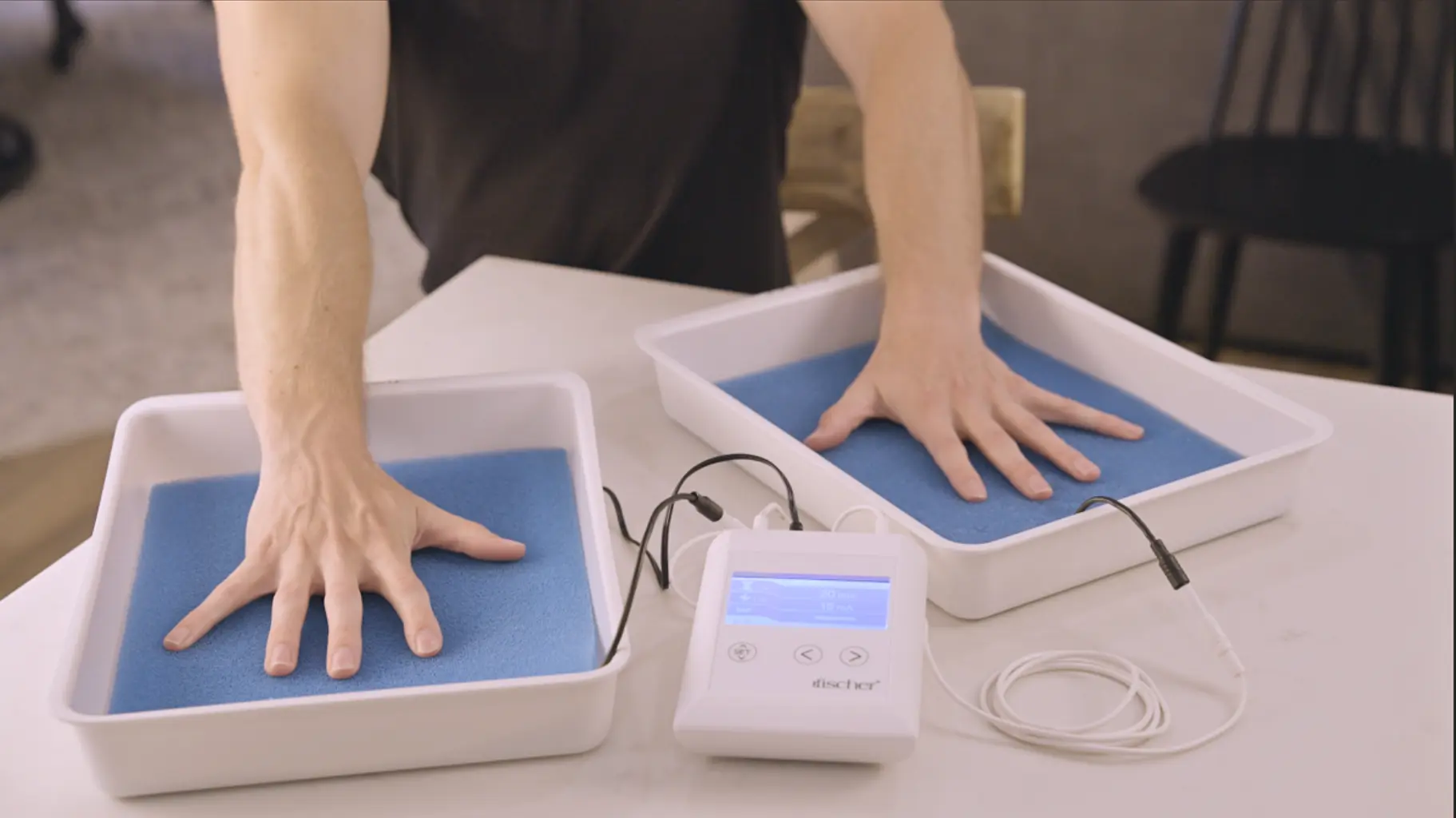Targeted Dermatology Treatments for Hyperhydrosis of Hands and Feet: Effective Solutions
Targeted Dermatology Treatments for Hyperhydrosis of Hands and Feet: Effective Solutions
Blog Article
Understanding the Origin of Excessive Sweating and Its Influence On Day-to-day Live
While it is generally comprehended as a physical feedback to manage body temperature, the triggers for too much sweating can differ commonly amongst people, encompassing not only physical elements however mental and likewise psychological components. By delving into the root causes of hyperhidrosis and discovering its complex results, a much deeper understanding of this prevalent concern can be gained, dropping light on the complexities that individuals grappling with extreme sweating browse on a day-to-day basis.
Physiology of Sweat Glands
The regulation of sweat manufacturing, an important physical procedure, is largely regulated by the task of sweat glands distributed throughout the human body. Gland are categorized into two primary types: eccrine and apocrine glands. Eccrine glands are one of the most numerous and are found in virtually all locations of the body. They play a crucial duty in thermoregulation by secreting a watery liquid onto the skin's surface area, which aids and vaporizes cool the body down. In contrast, apocrine glands are concentrated in locations rich in hair follicles, such as the armpits and groin, and their secretions are thicker and milky in look.
When the body temperature level rises, either because of exercise, high temperatures, or emotional stress and anxiety, the nerve system activates the sweat glands to produce sweat. This sweat is composed mainly of water and electrolytes like sodium and chloride. The process of sweat production is essential for maintaining the body's inner temperature level within a narrow, optimum array, highlighting the important role gland play in human physiology.
Triggers for Excessive Sweating
In recognizing the root creates of extreme sweating, it is important to recognize the triggers that can lead to this physical feedback. Physical physical effort, high temperatures, and spicy foods are likewise understood to cause extreme sweating in people prone to this condition.
Moreover, medications such as some antidepressants, opioids, and specific supplements can likewise work as triggers for hyperhidrosis. Comprehending these triggers is necessary in managing extreme sweating successfully - Treatment for hyperhydrosis of hands and feet. By recognizing and attending to the specific triggers that prompt extreme sweating in a specific, healthcare service providers can establish personalized therapy plans to reduce this problem and boost the person's high quality of life
Medical Conditions Associated
Connected with too much sweating are numerous clinical conditions that can intensify this physical response. One common condition is hyperhidrosis, a disorder identified by unusually raised sweating that surpasses the body's thermoregulatory demands. This can materialize in focal locations like the hands, soles, underarms, or face, impacting an individual's lifestyle as a result of social humiliation and pain.
Additionally, endocrine problems such as hyperthyroidism, diabetic issues, and menopausal warm flashes can likewise lead to excessive sweating. Hyperthyroidism triggers an overflow of thyroid hormonal agents, speeding up metabolic process and setting off sweating. Diabetes can induce sweating episodes, Continued especially during hypoglycemic episodes when blood sugar level levels go down as well low. Menopausal warm flashes, credited to hormonal variations throughout menopause, can cause unexpected and extreme sweating, often come with by flushing and heart palpitations.
Moreover, infections like endocarditis, hiv, and tuberculosis have been connected with evening sweats, a common symptom understood to interfere with sleep and influence general well-being. These medical conditions highlight the varied variety of underlying elements that can contribute to too much sweating, necessitating complete examination and monitoring by healthcare experts.
Psychological and psychological Elements

Influence On Social Interactions
Extreme sweating can have extensive impacts on an individual's ability to engage conveniently in social communications. dig this The visible indicators of sweat stains or damp spots on clothing can bring about embarrassment and self-consciousness, triggering individuals to withdraw from social scenarios. This withdrawal can affect partnerships, restriction social tasks, and impede individual and expert growth.

In addition, the anxiousness and self-worth problems originating from too much sweating can impact communication and interpersonal skills. People may battle to concentrate on discussions, join group discover this tasks, or reveal themselves confidently. This can lead to sensations of seclusion and solitude, as social links end up being testing to maintain.
Verdict

While it is typically comprehended as a physical response to control body temperature level, the triggers for extreme sweating can vary commonly among individuals, encompassing not just physical factors however mental and likewise emotional components. By delving into the origin causes of hyperhidrosis and discovering its multifaceted results, a deeper understanding of this pervasive concern can be gained, shedding light on the complexities that individuals grappling with excessive sweating navigate on an everyday basis.
Physical effort, high temperature levels, and spicy foods are additionally recognized to cause excessive sweating in people vulnerable to this problem. By identifying and resolving the particular triggers that prompt excessive sweating in a private, medical care suppliers can develop personalized treatment plans to relieve this problem and boost the person's high quality of life.
Extreme sweating can have extensive results on a person's capability to engage conveniently in social interactions.
Report this page